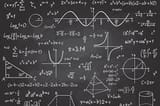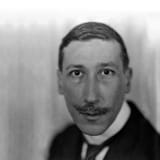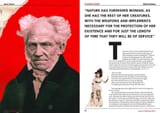Anonymous
7/9/2025, 7:48:00 AM No.24533373
How the fuck do I understand math as a humanities-minded person? I've always been fond of the arts, history, languages, politics, religion, literature, philosophy, and even some metaphysics since it was the only way I could "understand" reality, math was never my thing.
Now I'm trying to give math a chance and I still don't understand how math explains reality. I always heard mathematicians say that "math is the language of the universe" yet humanities, to me atleast, always seemed clearer and easier to understand when it comes to explaining our reality.
Are there any books I can read to help me understand math?
Now I'm trying to give math a chance and I still don't understand how math explains reality. I always heard mathematicians say that "math is the language of the universe" yet humanities, to me atleast, always seemed clearer and easier to understand when it comes to explaining our reality.
Are there any books I can read to help me understand math?
Replies:



